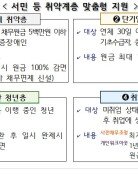Is the Korean Market Suffering From Excess Liquidity?
Is the Korean Market Suffering From Excess Liquidity?
Posted May. 19, 2009 08:27,
An engine part manufacturer had quick assets of 248.6 billion won (197.6 million U.S. dollars), which could be liquidated immediately as of late March, up around 150 billion won (119.2 million dollars) from late 2006 when the economy was in a better shape.
The company said, We increased our share of quick assets in preparation for unexpected demand for payment such as banks request for loan repayment.
A business owner liquidated three million won (2,384 dollars) in money market funds in February to buy stocks. After earning a return of more than 20 percent and selling the stocks, he invested the money into a money market fund again.
As more individual investors and companies invest in short-term financial products, the amount of Koreas short-term liquidity for the first time has surpassed 800 trillion won (635.9 billion dollars).
The government has spent a lot to revive the economy, but many experts say the real economy has barely recovered since the money has either been stuck in certain sectors or spread to speculative areas.
○ High-yield investment targets and emergencies
Short-term liquidity has surged as many investors prepare themselves for high-yield investment products and more people seek to secure abundant short-term liquidity in preparation for an emergency.
Last month, a whopping 46 trillion won (36.6 billion dollars) was poured into the initial public offering market and a large sum went into applying for purchases of newly built apartments in Incheon.
Experts say investors seemed to have invested in short-term financial products and later liquidate it to reinvest in the initial public offering and housing markets. Jeon Min-gyu, a research fellow at Korea Investment and Securities, said, Koreas uncertain future prevents abundant liquidity in the market from flowing to the nations industries. Money will be injected into sectors that are expected to remain stable and profitable.
○ Stuck in a dilemma
Financial authorities have faced difficulty in determining whether Korea has excessive liquidity that could distort the market.
Certain experts say the share of short-term liquidity in Koreas GDP has set a new high, meaning unproductive sectors are absorbing too much money. After receiving data from the Bank of Korea, Hi Investment and Securities calculated the share of short-term liquidity in GDP.
The brokerage said the figure jumped a whopping 10 percentage points from a year ago to 58.3 percent as of late March.
Shin Min-yeong of LG Economic Research Institute said, Given the narrow definition of the amount of money in circulation, too much short-term money is in circulation. If a preemptive hike in interest rates is certain to prevent inflation, the government needs to come up with effective monetary policies. Money poured into unproductive sectors such as real estate and stocks could create a bubble in asset prices.
Others say, however, that the ultimate amount of short-term money cannot be a yardstick to determine excess liquidity, in a report released in July 2003, Samsung Economic Research Institute said, The amount of floating funds reached 478 trillion won (379.97 billion dollars) in late 2002, of which 139 trillion won (110.5 billion dollars) could be described as excess funds.
Choi Hee-gap, an economics professor at Ajou University who wrote the report, said, When compared to 2002, businesses are holding a large amount of money to prepare themselves for an unexpected credit crisis. Though the economy has abundant liquidity, it is hard to confirm whether Korea has excess liquidity.
○ Premature to retrieve liquidity
Despite the opinion gap, most economists agree that introducing monetary policies over the near term to reduce liquidity in the market is premature. Since domestic companies have not yet announced full-pledged restructuring measures, it is hard to predict how seriously the financial sector will be affected.
If the government introduces measures to reduce liquidity while issuing currency stabilization funds, higher interest rates will block economic recovery.
A high-ranking official at the Bank of Korea said, Many experts urged Korea to inject more liquidity into the market few months ago. It is not right for them to mention excess liquidity at a time when the economy has improved slightly.
legman@donga.com jaeyuna@donga.com






